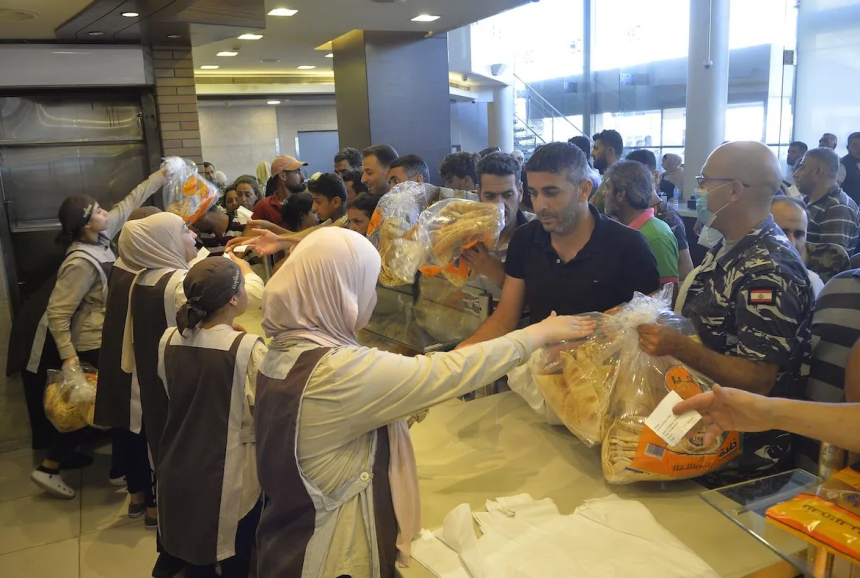Lebanese citizens continue to face shortages of bread and medicine and fear the renewal of fuel shortages. LIMS explained that as long as price controls are in place, commodities will be scarce in the market. Since the Ministry of Economy and Trade set the price of bread below the actual cost of flour, bakeries have refused to operate at such a loss. As for subsidizing flour to make the lowered prices viable, this remedy only incentivized the use of subsidized flour in products that are not subject to price controls, such as pastries and cakes.
LIMS insisted on the need to lift price controls and subsidies on every product, including bread and medicine. Lifting price controls would allow for the price to be set fairly, based on what consumers can pay, and bakeries can offer. As for lifting the subsidies, this step is necessary to stop draining the central bank’s reserves—which are actually what is left of the depositors’ savings.
Additionally, LIMS objected to blaming Syrian refugees for the bread shortage. Having additional clients should actually be good news for bakeries and should lead to an increased income for government. However, the Ministry of Economy and Trade managed to convert this opportunity into a loss-making activity because of subsidies. LIMS argued that the economic burden caused by the refugee crisis is a direct cause of government policies. The economic aspect of the refugee crisis on Lebanon would be immediately alleviated, if subsidies were lifted on goods and services, such as wheat, fuel, and electricity, just to name a few.
- Impact Of Syrian Displacement On Lebanon’s Economy, July 9, 2022: OTV, TV Interview AR
- Who Bears Responsibility For the Interruption Of Bread Products? July 13, 2022: Al Joumhouriya, Article AR
- Why Is There An Interruption In Flour, Bread, And Even Pricing These Items? July 18, 2022: VDL, Radio Interview AR
- Between Bidding And Political Consumption…Return Refugees Go To Forefront in Lebanon. Motives To Stay Exist And Safe Return Not Guaranteed, July 27, 2022: Al Majala, Article AR

